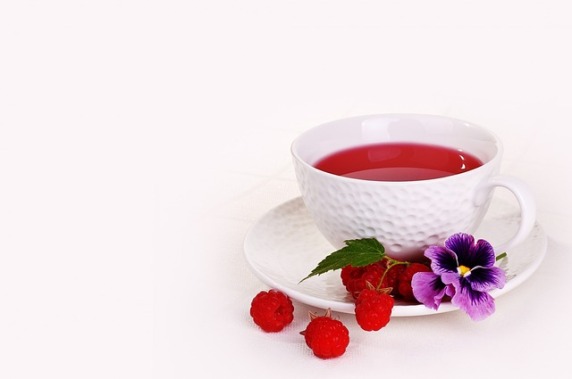My love of tea began when I was in the first grade. I was the youngest student in a one-room schoolhouse (grades 1-12) for roughly thirty children of military families assigned to an Army base in Bavaria. The teacher allowed me to sit with her as she taught the children at a higher levels. She thought I was brilliant. Of course, I thought that meant that I was more mature than the other two boys in my grade. I knew I was “grown.”
My parents were proud of my school work, but drew the line at how grown they thought I was when it came to the morning pot of coffee. I thought I should be allowed (like the German children I knew) to have morning coffee diluted by lots of cream and sweetened with lots of sugar. My father instead told me a story about tea drinking in England, its importance to British culture, and made me Cambridge tea instead. Cambridge Tea was a mix of hot water, tinned cream, sugar, and a touch of cinnamon. Not a tea leaf in sight.
I loved being able to sip my tea in the morning with my parents (on weekends only, because school day mornings were too busy for such indulgences). It made me feel special. The specialness of that experience has stayed with me throughout my life. I do prefer tea to coffee; and in those tender moments when I feel the need for a little comfort, I even revert to drinking Cambridge Tea again.
Sharing a pot of tea with someone is one of my favorite ways to connect with another human being. For me, the intentional brewing and pouring sets up a momentary fellowship that lasts the duration of the tea-drinking. The time it takes to drink a cup is just the right amount for sharing feelings and ideas. Sometimes the fellowship of tea can cement an existing friendship or spark the beginning of new relationship. Sometimes that fellowship is not with another person. It’s a moment to reconnect with myself–a choice plum of a moment, “out-of-schedule,” an opportunity to slow down and reflect on where I am in what I’m doing.
Something about a hot cuppa tea induces me to put aside the busy-ness and relax into the warm feel of the cup between my two palms as I hold it–just for a moment, as I take small sips to avoid burning my tongue and as I feel the liquid slowly make its way down my throat and into my abdomen. My body warms around each sip, and I relax more and more.
The movement of tea from throat to belly triggers a spontaneous memory of practicing breath awareness, moments when I take time to notice just how the natural breath feels as it moves through my body. The warmth of tea is reminiscent of the feel of the breath as it moves past my nostrils and mouth, down the back of my throat, then into my belly. This passage, so similar to tea-sipping, relaxes me more and more with each inhale and exhale.
For me, there is an essential intuitive connection between the drinking of tea and awareness of breath. Both practices are an opportunity for me to regain that inner appreciation or recognition, however momentary. Both practices lessen the pull of outside forces and open me to an inner stillness.
A cup of tea gives me pause from The Endless List’s desires (or demands, depending on its perceived urgency). The time it takes to drink one cup of tea is a perfect opportunity for me to get up from the computer or to put the cell phone down, to close the door to my office, and to spend one quiet moment with myself. Those “solitary” meditative mini-moments are the key to my mental and physical wellness. They bestow a brief yet necessary respite from the ceaseless pull of outside forces, the demands of work, family, friends, and people I really don’t know all that well.
One cup of tea at the right moment can change the entire flow of my day. I return from that 10-15 minute break refreshed, grounded, balanced, clear-headed, curious, and creatively reanimated.
